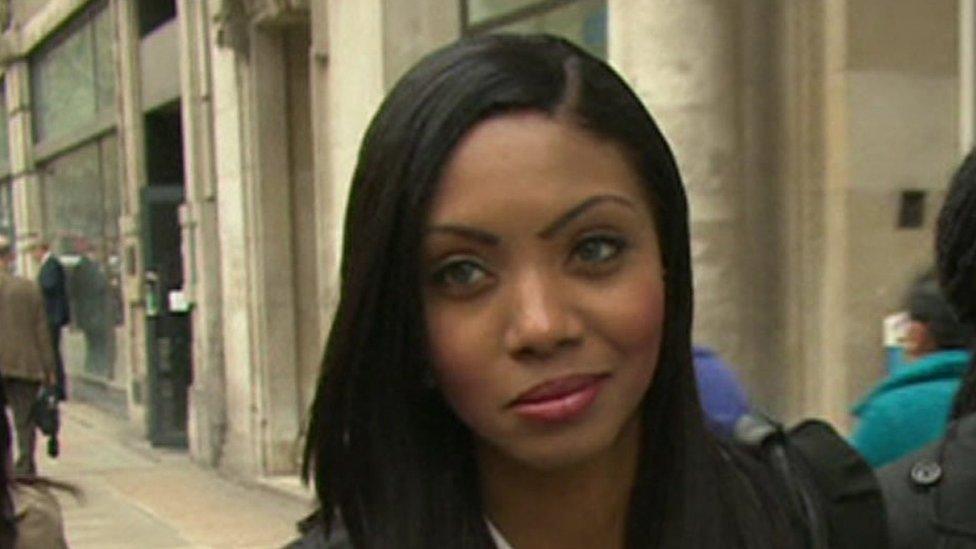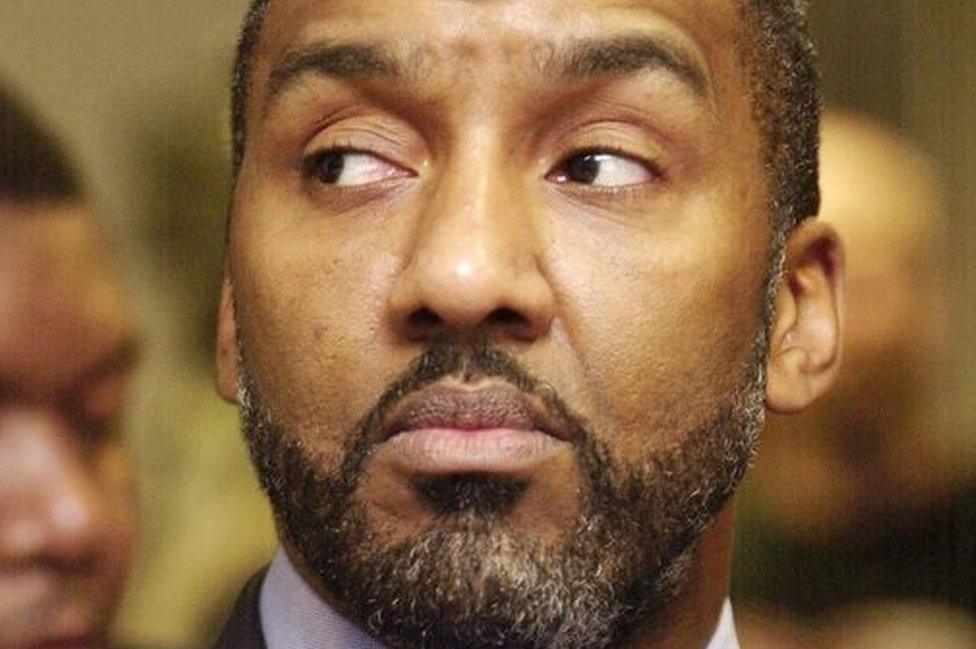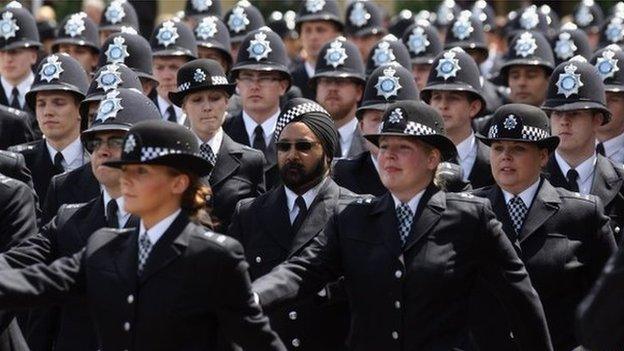Met Police officers 'fear reprisals' over discrimination complaints
- Published

Firearms officer Carol Howard received £37,000 in compensation after she was "singled out and targeted"
Met Police officers "expect to be victimised and fear reprisals" if they complain about discrimination, a study by an equality watchdog has found.
The Equality and Human Rights Commission (EHRC) report comes after PC Carol Howard won a discrimination case.
A reluctance to admit mistakes, poor record-keeping and misplaced loyalty were among poor practices, but no laws were breached, the EHRC found.
The Met said it was working "to tackle the perceptions of victimisation".
In total 68 employment tribunal claims were brought against the Met last year, of which it lost three.
Complicating factors identified by the commission in its study were a police culture of "looking after your own", and the force's "painful history" over racism.
The EHRC launched its investigation in the wake of the Carol Howard case. The Met came under heavy criticism over the way the firearms officer was treated after it was revealed she had been arrested over disagreements with her estranged partner.
'Unacceptable'
No charges were ever brought and an employment tribunal heard she was hounded by her boss for being a black woman.
In another case, PC Daniel Lichters was taunted for being gay, and a tribunal said the Met had "either set out to, or were reckless about destroying the claimant's character".
Laura Carstensen, lead EHRC commissioner for the investigation, said: "It is unacceptable that police officers and staff often expect to be victimised if they complain about discrimination, and particularly so when this is the organisation to which all Londoners look for protection and fair treatment."

Former Supt Leroy Logan said during his career complaining was seen as a "sign of weakness"
The commission said it was unable to decide whether officers actually suffered after making a complaint, because "the quality of the [police's] data... made it difficult to reach any conclusions".
Former Supt Leroy Logan, a founder member of the National Black Police Association, said during his 30-year career there was a sense that if you complained "you'd betrayed the organisation or showed a sign of weakness".
He said a zero tolerance stance was needed and recruitment, retention and progression needed to be monitored and evidenced to address any issues.
He said: "If there was proper, prompt intervention and not an adversarial stance against the victim they could easily be resolved. I think we're in the right direction. It just needs to speed up."
Claim 'utterly' rejected
The EHRC accepted the Met had been working to improve, but said it needed to "tackle the expectation of victimisation", improve record-keeping and strengthen management skills.
Met Deputy Commissioner Craig Mackey said: "After nearly two years of investigation, the EHRC has confirmed that they have found no evidence of any unlawful acts in how the Met responds to staff grievances and complaints linked to discrimination or any evidence of systemic victimisation."
He said the report's conclusions "differ little" from an earlier review carried out by conciliation service Acas that was commissioned by the force, and that the Met "utterly reject" the suggestion that a lack of data hampered the EHRC investigation.
Mr Mackey said 37 - or 0.08% - of the Met's 45,000 staff had alleged misconduct related to discrimination and 92 raised discrimination grievances last year.
He pointed out that an "enhanced plan" had been put in place to to "tackle the perceptions of victimisation identified by the Acas report".
- Published21 May 2016

- Published14 February 2015

- Published24 September 2014
